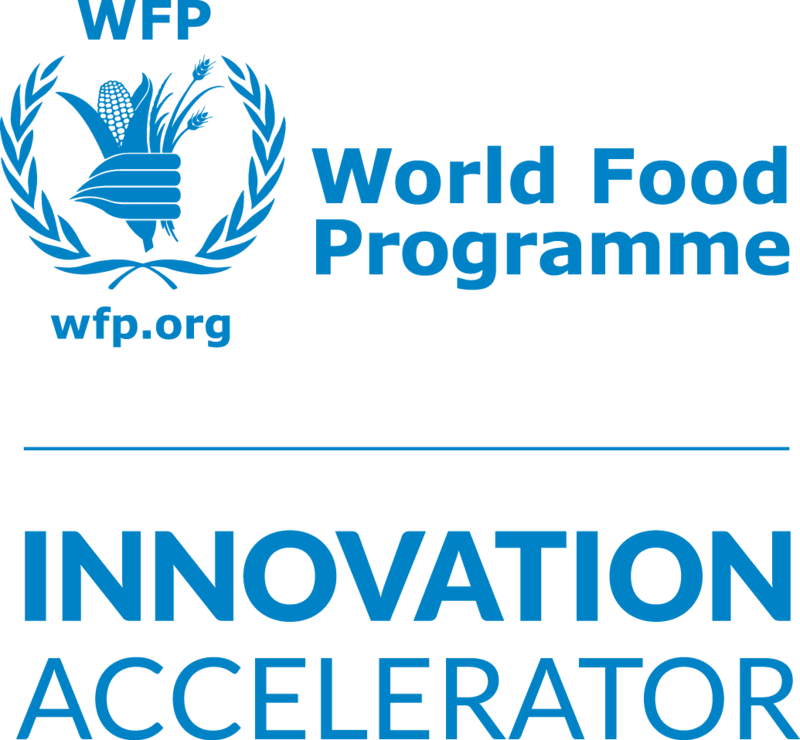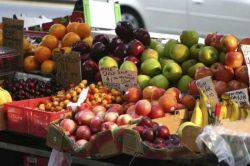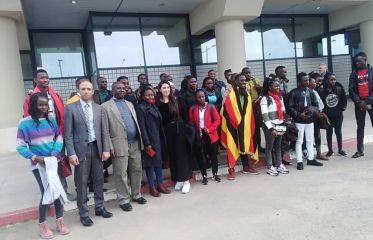Breaking News
- Flexible Remote Work Opportunity for University Students: Earn $100–$250 Per Month ...Read More
- Ministry of Education and Sports Azerbaijan Government Scholarships For 2025-2026 Academic Year ...Read More
- Government Sponsorship Undergraduate Admission Lists 2025-26 for Makerere University ...Read More
- Ministry of Education And Sports: Egyptian Government Scholarships 2025-2026 Academic Year ...Read More
- Ground Breaker Full Scholarship for girls to study Software Engineering 2025 July Intake ...Read More
- Tony Elumelu Foundation Entrepreneurship Programme (TEEP) 2025 for young African Entrepreneurs ...Read More
- DESIGNING FUTURES 2050 International Design Competition 2025 (€15,000 prize) ...Read More
- Ground Breaker Full time Scholarship for girls to study Software Engineering 2025 Intake ...Read More
- Ministry of Education And Sports Algerian Vocational Training Scholarships for 2024-2025 AY ...Read More
- Ministry of Education and Sports Advert for the Algerian Government Scholarships for 2024-2025 ...Read More
World Food Program Innovation Challenge 2022

Deadline 6th April 2022
The United Nations World Food Programme (WFP) Innovation Accelerator sources, supports and scales bold new solutions to disrupt global hunger and achieve the Sustainable Development Goals. We are launching a WFP call for applications in search of game-changing ideas addressing hunger at the root and galvanizing international cooperation on food security. The fact that 811 million people still go to bed hungry each night suggests that food systems — the path that food travels from field to our plates — are not meeting the needs of all people. We have seen that some food systems can easily be disrupted by climate shocks, COVID-19 and violent conflict. Even in stable environments, people have limited access to nutritious food because of geographic isolation, socioeconomic inequalities, or weak commercial markets. For this year's challenges we are looking for disruptive innovations for fighting hunger in areas such as resilience to shocks and stress, climate change, access to safe and nutritious food, and advancing equitable livelihoods for all.
What We Offer
● Selected teams will be invited to participate in a fully virtual WFP Innovation Bootcamp in June 2022 for a week.
● Projects are able to apply for the WFP Sprint Programme, a six-month acceleration programme with access of up to US$ 100,000 in equity-free funding, mentorship, and WFP’s global network of partners and vast field operations.
● Scaling innovations that have proven their concepts and value for social impact may qualify for further funding and support.
● The WFP Innovation Accelerator has a track record of organizing 40 flagship innovation bootcamps, supporting over 387 teams to rapidly refine their innovations, field testing over 100 projects within WFP operations, and bringing 16 disruptive innovations to scale, reaching more than 8.6 million people in 2021 alone.
What We Are Looking For
WFP’s current innovation priorities are listed here. We also encourage strong “wildcard ideas” to apply. Together with the brightest and best minds globally, we will be able to end hunger.
1. Resilient Food Systems
Improving the resilience of food systems is key to eradicating hunger. We are looking for solutions that enable communities to better resist and recover from the effects of conflict, natural hazards, climate change, pandemics, political instability and other shocks and stressors that impact food security in the long term. These solutions should have the potential to:
● Facilitates the integration of a variety of technologies, services and tools to better equip communities to adapt to the impacts of climate change;
● Provide communities and governments with access to climate insurance services to protect them from climate shocks;
● Integrating climate information into early warning systems, supply chains, coordination preparedness and response capacities;
● Create seasonal climate forecasts and decision-making tools for agricultural sector institutions to be better able to implement anticipatory actions;
● Enhance the resilience in shock-prone areas by helping stabilize prices, build safety nets for temporary assistance, and boost national social protection systems;
● Enable preventative actions for compounded risks and multiple shocks through early warning systems;
● Connect smallholders to clean energy equipment and services that improve food production, processing and preservation
● Enable smallholder farmers’ access to credit with climate risk profiling (e.g. using artificial intelligence to predict weather patterns, agricultural best practice, etc.) to de-risk credit guarantee schemes;
● Enable sustainable climate-friendly water management solutions to maximize the value of water for agricultural use;
● Foster clean energy technologies to power value chains;
● Increase private sector investment in sustainable development, including through blended financing mechanisms to support small projects;
● Improve availability and affordability of nutritious food for vulnerable groups to address malnutrition in emergency affected contexts;
● Utilize remote sensing or other sources of datasets in tracking supply chain efficiency in order to accurately estimate delivery time and alert which area/s or problems might arise en route; ● Enable us to assess post-disaster damage and easily analyze damage captured by mobile phone images, drone images, and satellite images simultaneously; and
● Uses human-in-the-loop machine-learning-based damage assessment workflow and taps into data annotation by volunteers across the globe.
2. Safe and Nutritious Food Systems
To end hunger and all forms of malnutrition, we need food systems that bring affordable and safe food products to all people. We are looking for solutions that increase the availability of nutritious food, making food more affordable and accessible. These solutions should have the potential to:
● Enable and expand the coverage of nutritious-sensitive social protection systems for food-insecure communities;
● Enable WFP to measure micronutrients deficiency information in a non-invasive way covering all members of the targeted groups (i.e., ideally for iron, iodine, Vitamin C and Vitamin A)
● Enable us to measure all forms of malnutrition in the last mile in an affordable way (e.g. weight, height, age, mid-upper arm circumference)
● Support the people we serve to maximize preservation, cooking and feeding practices;
● Stimulate behaviour change amongst beneficiaries/caregivers to purchase and consume nutrient-rich and diverse foods;
● Address micronutrients deficiencies in women and children;
● Enable biofortified crops such as naturally-bred staple crops that have higher vitamin and mineral content than standard staples;
● Promote the implementation of comprehensive school food programmes (e.g. web-based school menu tools, artificial intelligence-powered tools to predict the attendance of students at school to ensure every child receives the food they need, etc.);
● Enhance nutrient intake of households by helping them plan their meals based on the availability of food in local markets, price constraints, dietary preferences, and local food culture;
● Employ new affordable finished foods (that are not patented or subject to proprietary restrictions) that afford a balanced nutritional profile covering multiple vitamins and minerals, have a shelf life of 12 months, and are stable at 30 C / 65% RH; and
● Inspect the quality of grains, vegetables and fruit using handheld devices, such as mobile phones.
3. Inclusive Food Systems
Building food systems where no one is left behind will bring us a step closer to a world free from hunger. We are looking to support solutions that promote equitable livelihoods for all by empowering smallholder farmers and local producers and bringing food and income-generating activities to communities at the last mile. These solutions should have the potential to:
● Promote women-led enterprises to grow and sell nutritious crops;
● Support small-scale farmers to raise productivity;
● Bridge the digital divide and increase access to information and services for smallholder farmers;
● Facilitate and promote local food production;
● Enable financial inclusion for vulnerable communities in rural areas;
● Streamline social protection mechanisms across agri-food systems and related sectors; Generate and promote living incomes and wages in value chains for small-scale farmers and agricultural workers.
Eligibility Criteria
Applications will be scored according to a standard set of criteria* set by the WFP Innovation Accelerator, including:
● Alignment with WFP priorities and the impact towards the Sustainable Development Goal 2: Zero Hunger.
● The level of innovation the solution brings to WFP and the humanitarian sector at large.
● Indicators that the solution can be feasibly integrated and financed in the long-term, including the team qualifications.
*We reserve the right to adjust eligibility criteria based on the changing context as new information becomes available.
Application Process
1. To submit your application, please fill in the Application Form before 6 April 2022 11:59 pm (CET).
2. If you know a relevant project for us to consider, please let us know by filling out this Referral Submission Form.
3. We will review and match successful applications with one of our WFP Innovation Bootcamps in the next six months. The next Innovation Bootcamp is scheduled for June 2022 and will be held virtually amid COVID-19 travel restrictions. We value all applications, however, we are only able to contact shortlisted applicants.
4. Interested but don’t feel your idea is ready yet? Don’t let this stop you! We accept applications on a rolling basis throughout the year, and applications received past this deadline may still be considered for future programs in 2022.
5. For more information, see the Frequently Asked Questions.
Apply Here >>>
Top Courses Currently Admitting
-
Diploma in Medical Lab Science
Clarke International University
-
Bachelor of Arts in Economics
Makerere University Business School
-
Certificate in Library & Information Science
Ndejje University
-
Diploma in Records & Archives Management
Uganda Institute of Information and Communication Technology
-
Diploma in Marketing
Web Info-net institute of Technology






























